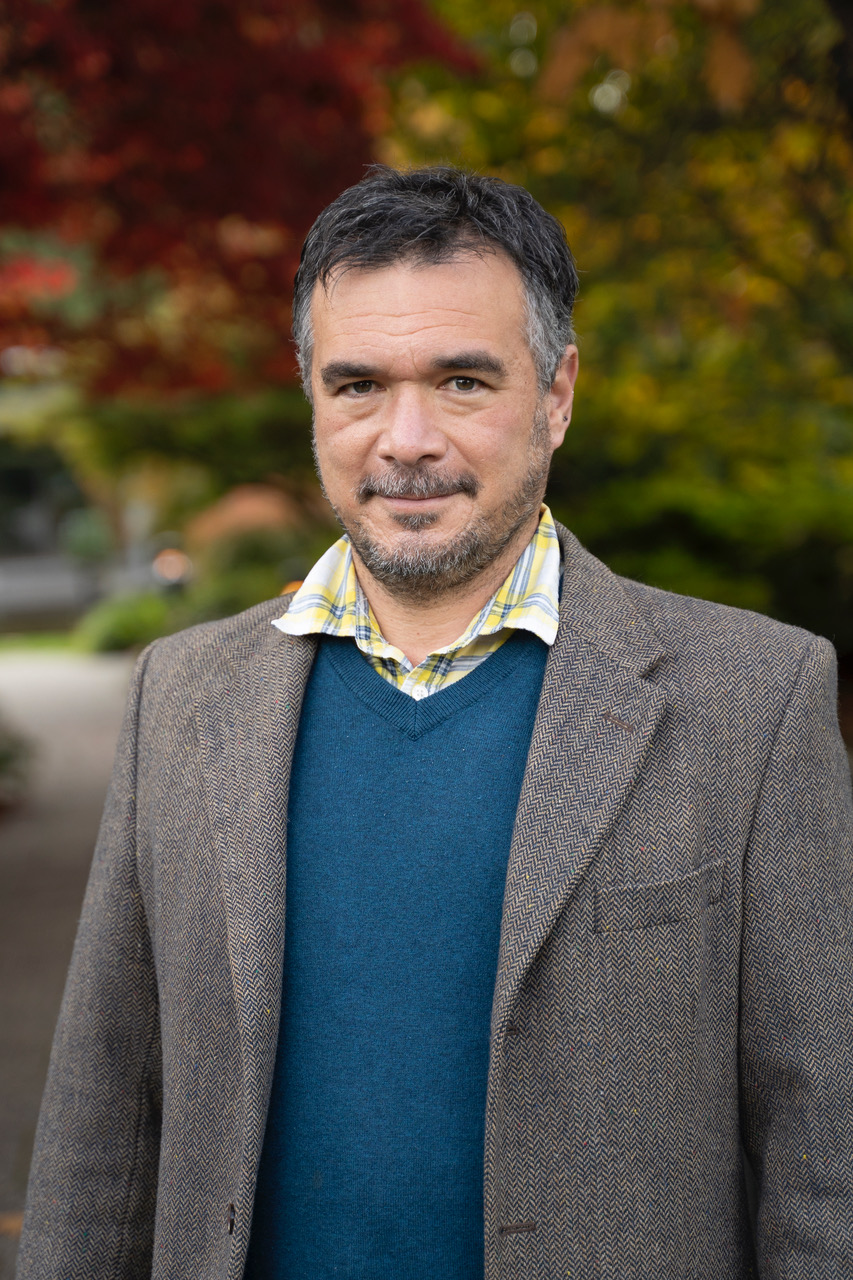Rafael Wainer
Research Area
Research Stream
Education
Ph.D., University of British Columbia, 2017
M.A., University of British Columbia, 2008
Licenciado, Universidad de Buenos Aires, 2003
About
Rafael has a Ph.D. in Medical Anthropology from UBC specializing in children’s cancer experience throughout treatment. He works with health care providers, children and families in Argentina. He is interested in questions of subjectivity, capacity for action, the body, social care, and the limits to medical knowledge and practice. As an instructor at the Anthropology Department Rafael teaches courses on Introduction to Socio-Cultural Anthropology, Medical Anthropology, Sex, Gender, and Culture, Anthropology of Mental Health, Anthropology of Drugs, Applied Anthropology, and Contemporary Anthropological Problems.
Teaching
Research
Children and family; mental health; critical disability studies; emotions; death, dying and end-of-life care; pain and suffering; palliative care; ethnographic research at medical and clinical institutions; qualitative health methods; doctor-patient relationships; health policy; quality and dignity of life; medical assistance in dying, and COVID-19 politics.
Publications
2021a Threshold: Emergency Responders on the US-Mexico Border. Jusionyte, Ieva (Berkeley: University of California Press, 2018). PoLAR. https://doi.org/10.1111/plar.12426
2021b Gómez-Ramírez O, Medeiros P, Wainer R, Iyamu. I. Does the ‘Canada COVID-19 alert’ app stand up to critical scrutiny? A rapid qualitative assessment. BMJ Open 2021;11:doi:10.1136/bmjopen-2021-QHRN.13
2021c “COVID-19: Complicity, complacency, and connections.” FocaalBlog, 22 November. https://www.focaalblog.com/2021/11/22/rafael-wainer-covid-19-complicity-complacency-and-connections
2020a The metropolis and mental life in the age of COVID-19: Delaying descent into the blasé attitude. Somatosphere, online at: http://somatosphere.net/2020/metropolis-mental-life.html/
2020b Wainer, Rafael and Radosta, Darío-Iván. Duelo en Escuelas: Una mirada a partir de la pandemia por Covid-19. Entrevista a Alejandro Nespral y Maria Luz Hurtado sobre el Proyecto «Duelo en Escuelas» en San Carlos de Bariloche (Río Negro). Revista Espoiler, url: http://espoiler.sociales.uba.ar/2020/10/01/duelo-en-escuelas-una-mirada-a-partir-de-la-pandemia-por-covid-19/
2019 Permeable Bodies: Children’s Bodily Boundaries When Navigating Cancer Treatment. Medicine Anthropology Theory, Vol. 6, No 2, Section Dissertating, url: http://www.medanthrotheory.org/article/view/5368/7353
2013 The Dignity of Children: How to Evaluate Bodies’ (Im)Permeability. InReframing Disability and Quality of Life. Narelle Warren and Lenore Manderson, eds. Pp. 61– 78. Social Indicators Research Series, 52. Springer Netherlands.
2011 Death, Dying, and Biomedicine: “Thinking with Film” as a Teaching Resource for Medical Anthropologists. Anthropology News. Society for Medical Anthropology Section. 52(9): 40, December.
2010 La bio-política de los transplantes o ¿Qué está detrás de la “Salvación de Vidas”? Cuadernos del Instituto Nacional de Antropología y Pensamiento Latinoamericano 2008/2010. Pp. 251-254. ISSN 0570-8346.
2009a Roman, Leslie; Noble, Steve; Wainer, Rafael and Young, Alannah. No Time for Nostalgia: Asylums, Residential Schools, Medicalized Colonialism in British Columbia (1859-1897) and Artistic Praxis for Social Transformation. International Journal of Qualitative Studies in Education, 22(1): 17-63.
2009b Sobre acciones, silencios y un sentido de humor particular en un equipo de cuidados paliativos. AIBR, Revista de Antropología Iberoamericana, 4(3): 409-442. ISSN in Elect. Ed.: 1578-9705. ISSN in Press Ed.: 1695-9752
2008 Acompañando a la gente en el último momento de su vida: reflexiones en torno a la construcción paliativista de la dignidad en el final de la vida. Runa, Ene./Dic. 2008, Vol.28, p.111-140. ISSN 0325-1217.
2005a “‘Yo No Te Puedo Decir Cuánto sino Cómo.’ Construcción y Manejo de la Esperanza en el Final de la Vida, desde la Perspectiva Profesional de un Equipo de Cuidados Paliativos.” ANUARIO DE ESTUDIOS EN ANTROPOLOGÍA SOCIAL, 2004. Centro de Antropología Social del IDES y Editorial Antropofagia, Buenos Aires, pp. 187-197. ISSN 1669-5186.
2005b Ampliando el campo semántico de los transplantes, o cómo construir un “lenguaje divergente de la retórica médica de sacrificios, donaciones, altruismo, y salvación de vidas”. Potlatch 2(3): 150-156. ISSN 1668-7191.
PUBLIC OUTREACH
2021 Una reflexión sobre el duelo con estudiantes universitarios en Vancouver, Canadá (A reflection about grief with university students in Vancouver, Canada). Fundación IPA. https://fundacionipa.org/reflexion-rafa/
2017 El rol del humor en la relación terapéutica en Cuidados Paliativos (The role of humor in therapeutic relationships in palliative care). Fundación IPA. (http://fundacionipa.com.ar/el-rol-del-humor-en-la-relacion-terapeutica-en-cuidados-paliativos/)
2013 Why Not Prosecute Those Who Implemented Ethnocide? Georgia Straight, Nov. 26, 2013. Print and online versions (http://www.straight.com/news/537206/why-not-prosecute-those-who-implemented-ethnocide)
Awards
- Sessional Lecturer Teaching Award. UBC – Department of Sociology. (2022)
- Graduate Student Research Award. UBC. (2014)
- Faculty of Arts Graduate Award. UBC. (2011/12/13)
- “Bottom Billion” Fieldwork Fund. Liu Institute for Global Issues. UBC. (2011)
- UBC Mobility Award. UBC. (2011)
- Catherine Pouget (Palliative Care) Award “Honorable Mention” (2011)
- Four-Year Fellowship. UBC. (2009/2012)
- Faculty of Arts Graduate Award. Entrance Scholarship. UBC. (2008)
- University of BC Graduate Fellowship. UBC. (2007/2008)
Graduate Supervision
Ph.D. Co-Director
2020-Present “Historical and anthropological reconstruction of the Hospice movement in Argentina”, Escuela de Doctorado, UNSAM, Argentina (Thesis by Darío-Iván Radosta)
Additional Description
PhD, Medical Anthropology
